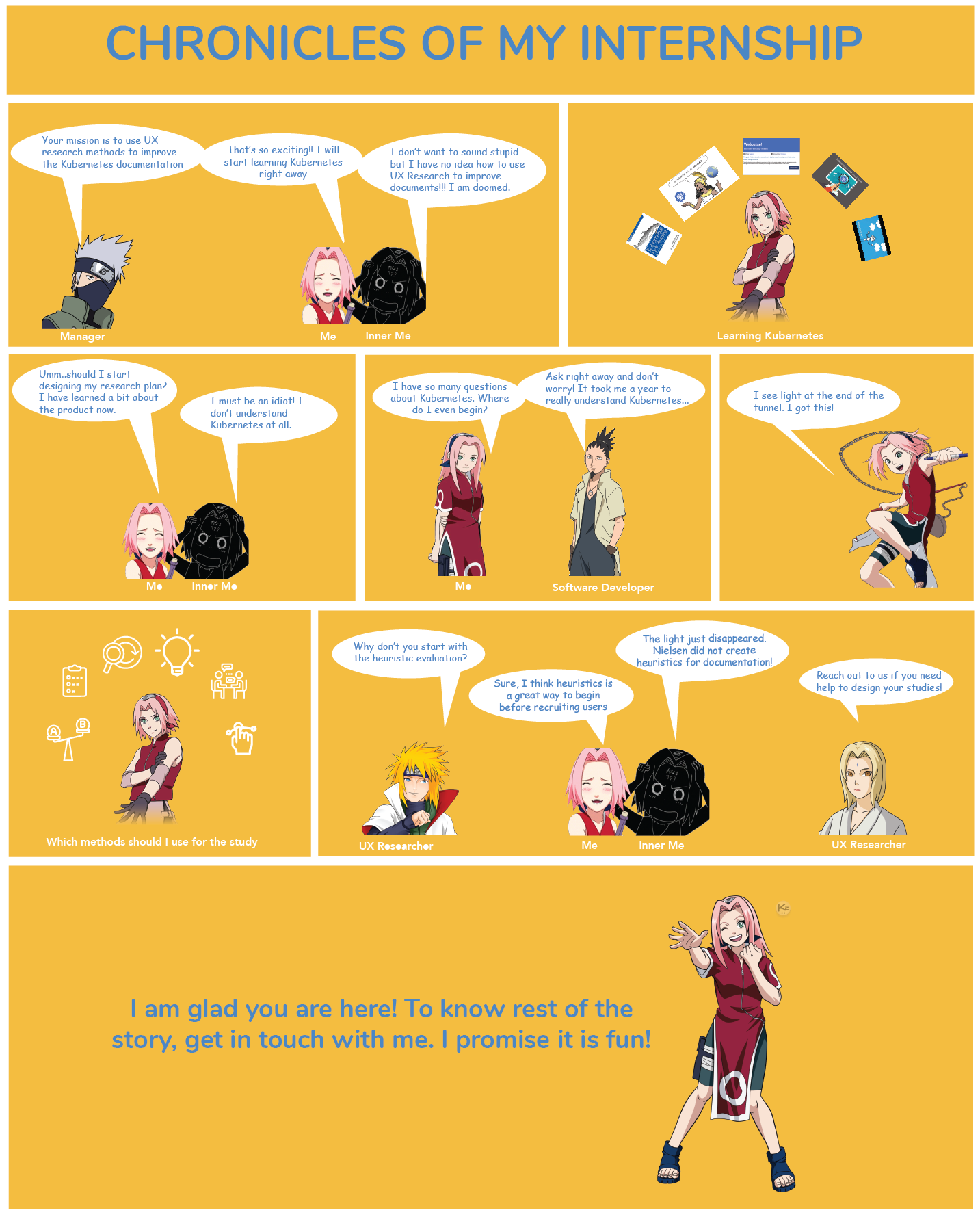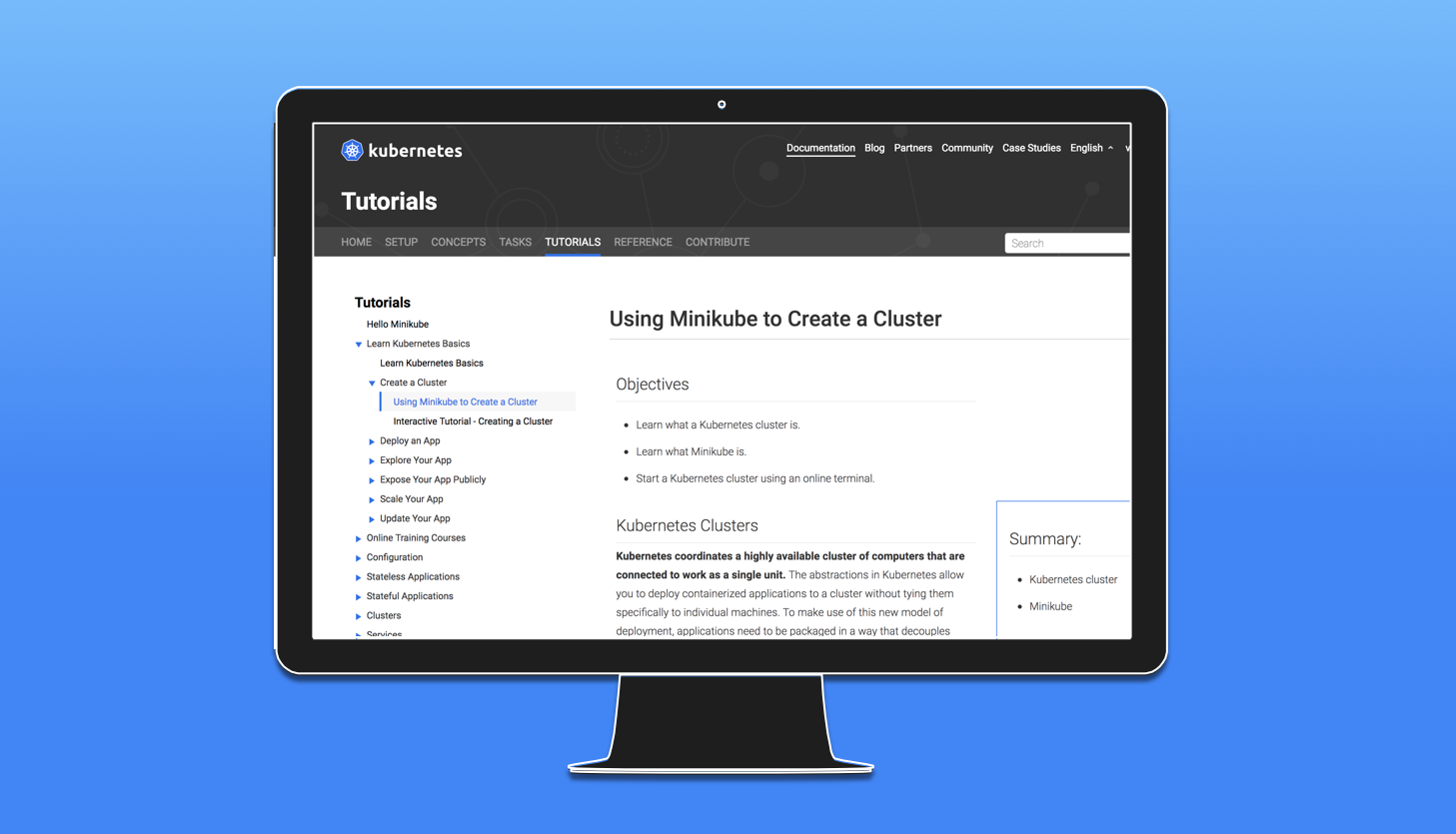

User Interviews, Comparative Analysis, Heuristic Evaluation & Usability Testing
14 weeks
UX Researcher
Summer, 2018
I worked closely with my host, UX Researchers, Software Engineers and Technical Writers. I started my project by learning about Kubernetes by reading documentation and doing online tutorials. This helped me create a friction log of my own experience with the Kubernetes documentation. This later helped me create the UX research plan for my project.

In the next phase of my project, I streamlined my project to focus on one user persona and create my research plan for that particular persona. After designing my studies, I worked with the senior UX Researchers to get feedback on my study and scope it for the summer. As part of the studies, I recruited the users and conducted interviews and usability tests with them.
I also designed a framework to do heuristic evaluation for the documentation. I used 6 of Neilson’s heuristics and added 2 more that were relevant for documentation to evaluate documentation sets. Later, I created the template of this framework that Technical Writers at Google could use to evaluate their documentation from usability perspective. I conducted the heuristic evaluation for the selected documentation set with the two Technical Writers and identified the major issues.
I also compared the documentation sets with parallel and analogous competitors that included documentation sets of other products and online courseware. I included online courseware because that is another way how novice users learn about complex products like Kubernetes.
Neha's project was challenging because UX research usually focuses on product UIs, not documentation. However, Neha rose to the challenge by creatively adapting existing UXR methodologies to documentation.
To add to the level of difficulty, Kubernetes itself is a complex and hard to understand product -- it can take several months, even for engineers, to develop a basic understanding. Having no prior experience with containers or Kubernetes, Neha was able to drill down, identify key concepts, ask clarifying questions, and develop a working understanding of Kubernetes and its core components.
To conclude her internship, Neha wrote a set of reports that summarized the findings and insights gained from each phase of her research and gave a presentation at several internal venues. She also created a lightweight heuristics template for tech writers to evaluate their own docsets, which should help to improve other docsets across our org. In total, she generated over 151 pages of research documentation and artifacts. The final report includes recommendations for changes that are being implemented.” --Andrew Chen
